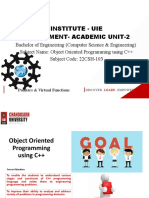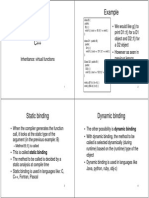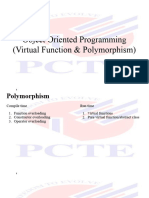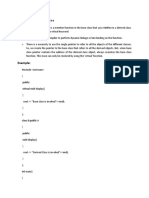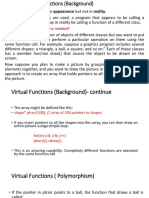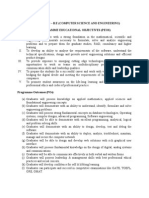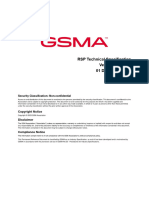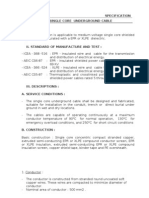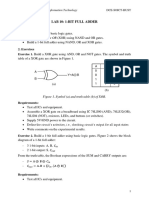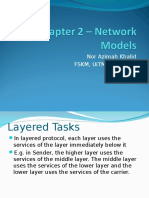0% found this document useful (0 votes)
259 views8 pagesVirtual Functions in C++
Virtual functions allow functions to be overridden in derived classes. They ensure the correct version of the function is called based on the object's actual type, not the reference type. Virtual functions are declared with the virtual keyword in the base class and can be overridden in derived classes. Pure virtual functions are declared with = 0 and make a class abstract, requiring derived classes to implement the pure virtual functions.
Uploaded by
Siva KishoreCopyright
© © All Rights Reserved
We take content rights seriously. If you suspect this is your content, claim it here.
Available Formats
Download as PDF, TXT or read online on Scribd
0% found this document useful (0 votes)
259 views8 pagesVirtual Functions in C++
Virtual functions allow functions to be overridden in derived classes. They ensure the correct version of the function is called based on the object's actual type, not the reference type. Virtual functions are declared with the virtual keyword in the base class and can be overridden in derived classes. Pure virtual functions are declared with = 0 and make a class abstract, requiring derived classes to implement the pure virtual functions.
Uploaded by
Siva KishoreCopyright
© © All Rights Reserved
We take content rights seriously. If you suspect this is your content, claim it here.
Available Formats
Download as PDF, TXT or read online on Scribd
/ 8
























